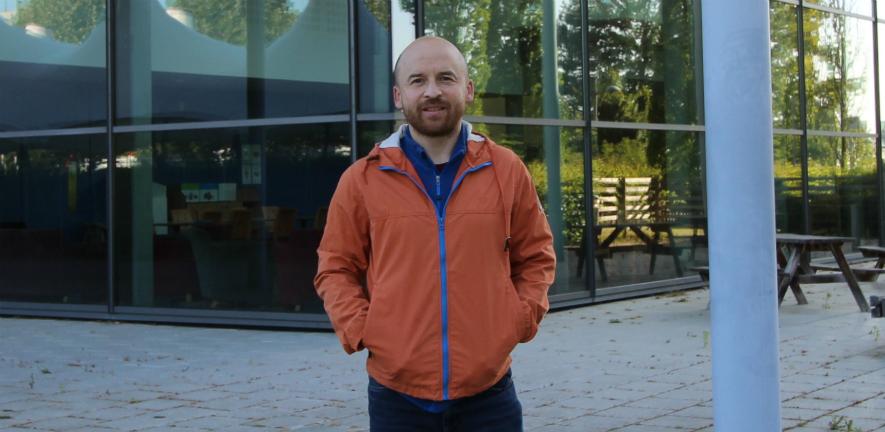
Submitted by Jane Durkin on Tue, 02/06/2020 - 12:32
Dr Andrew Caines is a Senior Research Associate in the Natural Language and Information Processing Research (NLIP) Group at the Computer Laboratory, and has been a member of the Automated Language Teaching & Assessment Institute (ALTA) since its foundation in October 2013. Prior to that he was a data analyst in the Literature Services team at the European Bioinformatics Institute, and carried out corpus linguistics research for Professor John Hawkins on the English Profile project. He completed his PhD in 2010 at the Research Centre for English & Applied Linguistics before its amalgamation into the section of Theoretical & Applied Linguistics, supervised by Dr Jim Blevins and Professor Paula Buttery.
Andrew will present an overview of research by the ALTA Institute into adaptive educational technology for the purposes of automated language teaching and assessment at the Cambridge Language Sciences Symposium for Early-Career Researchers on 18 June 2020. We are delighted to welcome Andrew as a speaker at this event which he initiated in 2018 and has led as Programme Organiser for the past two years.
My research sets out to develop automated methods for the teaching and assessment of language, specifically for non-native speakers learning English, but in principle the research can be applied to any language and possibly to first language acquisition too. This means that we need to have good models of language learning, requiring cutting edge natural language processing and machine learning techniques, and collaboration with domain-experts in language assessment, linguistics and education. Automated teaching and assessment has the potential to be a great leveller in the sense that it can make assessment more consistent and therefore fairer, and it can make high quality teaching standards freely available to learners worldwide. The awareness of these two wider objectives motivate me in my day-to-day work.
I am lucky to work with a group of faculty, postdocs and students at the Computer Lab on the West Cambridge site. I’m a member of the NLIP group and have been with the ALTA Institute since its inception in October 2013. I also occasionally visit the offices of our funder, Cambridge Assessment, at the Triangle off Shaftesbury Road. I take part in regular research meetings, work towards event and publication deadlines, and also teach and supervise student projects. Of course, all meetings and collaboration take place online at the moment, but normally cycle-commuting around the wonderful city of Cambridge is part of my daily routine and the interaction with colleagues is what makes the job most enjoyable.
Cambridge is an ideal place for my research because I have been trained by world-renowned linguistics researchers, I work with computer scientists who apply and develop cutting-edge techniques in machine learning and natural language processing, and we can collaborate with assessment and teaching experts at Cambridge Assessment and Cambridge University Press. There is a vibrant postdoc community in Cambridge and the support for researchers at the Computer Lab is exceptional. I’ve been fortunate to have received superb supervision and mentoring since completing my PhD, and – since I’m not so early in my career any more – I’m ready to pass on some of that support and mentorship to students and postdocs who are still in the early stages of their careers. The Language Sciences Interdisciplinary Research Centre is of course another reason why I’m lucky to be working in Cambridge. I was trained to work in interdisciplinary ways during my Master’s course here, and Cambridge Language Sciences offers the perfect opportunity to continue doing that. Finally, the city offers an excellent quality of life, and of course that all-round well-being is an important foundation for productivity at work.
